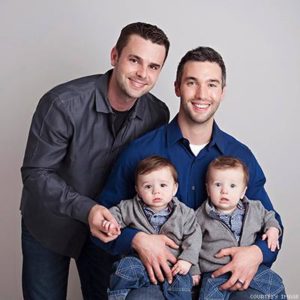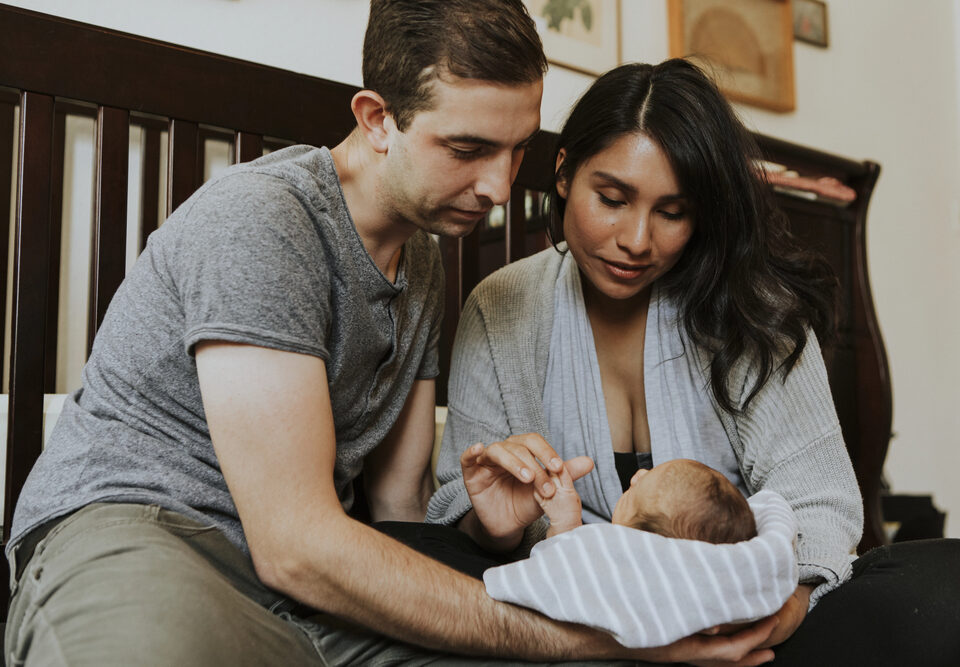The Ultimate Grandmother: Gay man becomes a father with his mother’s help
三月 30, 2015A Breakthrough for Gay Parental Rights
四月 6, 2015 A Texas fertility clinic has denied Joe Riggs and Jason Hanna service because the state of Texas does not recognize the validity of their marriage.
A Texas fertility clinic has denied Joe Riggs and Jason Hanna service because the state of Texas does not recognize the validity of their marriage.
Hanna and Riggs were married in Washington D.C., where same-sex marriage is legal and returned home to Dallas to celebrate their wedding with family and friends.
If the intended fathers’ names sound familiar to you, it is because this isn’t the first time that they have had to fight for their parental rights and the right to have a family. They were recently involved in a heated legal battle to co-adopt their biological twin sons who were born in April 2014. Their first attempt was denied by the judge, and after an appeal, they succeeded with a new judge who gave them the parental rights they justly deserved.
Texas has laws which deny same-sex couples the right to marry as well as denying the validity of the union if the marriage took place elsewhere.
Tyler Curry, a writer for The Advocate, explained in his article that following the ruling of their co-adoption, the couple wanted to move forward with another surrogacy. Rather than using the agency that they used for their previous surrogacy process, they chose an agency which was closer to their residence in Plano.
Hanna told The Advocate, “The phone conversation began with Hanna speaking to the clinic’s office manager.” After listening to the protocol which included expenses, Hanna was then transferred to the nurse coordinator.
A friendly conversation suddenly became cold.
He told the reporter, “I explained that we were looking for a second surrogacy and we had a conversation for several minutes. Then she asked why we were seeking a gestational carrier and I told her that we are a same-sex couple. I was immediately put on hold for about three to five minutes. Then the woman from the front desk finally picked up the line and began to tell me that they only service married couples.”
The receptionist apologized to Hanna, adding that it wasn’t her view, but that of the doctors in the clinic.
Hanna’s resolve willed him to make another phone call to another regarded Texas clinic known for surrogacy named, IVFMD.
Hanna told The Advocate, “I asked a handful of questions to the person who answered the phone and she said that I needed to speak with the office manager.” He continued, “Then I asked her if they service same-sex couples and she said no. She added that they have served same-sex female couples, but not male couples.”
Is something wrong with this picture? Gay women get the green light whereas gay men get a red one?
The Advocate decided to do some of their own research in this matter. They called the Dallas/Fort Worth Fertility Associates and spoke with the same office manager that Hanna did. She confirmed that they did not provide surrogacy for gay couples.
When pressed for clarification as to whether the clinic provides the service of implanting an embryo into a surrogate, Curry wrote, the manager curtly said, “No,” adding that while the clinic does offer this service, it is only available to couples who are legally married in the state of Texas.
Then The Advocate asked if same-sex marriage were legal in Texas, would they take on surrogacy cases? The red tape answer was the clinic would need to perform its own review if that were to happen.
Next, The Advocate contacted IVFMD. On the other end of the line was Tina Vu, an IVF coordinator.
Curry reported that Vu, “…would not tell The Advocate why the clinic’s policy did not allow services for same-sex male couples or single males. She just said that these policies were decided on when the practice first opened, and although it may not reflect what she believes, it is current policy.”
However, according to Curry, the Fifth Circuit Court of Appeals is to arrive at a decision which contests same-sex marriage bans in the sates of Mississippi, Texas and Louisiana.
“If the Fifth Circuit overturns such ban, clinics like Dallas/Fort Worth Fertility Associates would face legal ramifications if they chose to continue their discriminatory policies,” Curry writes.
As for Hanna and Riggs, Curry says their choices for their next surrogacy journey will be locating a practice which approves working with gay couples.



